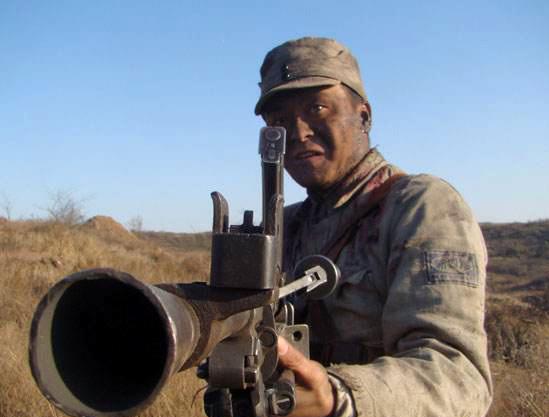The terrible thing about war is that you don't know when a bullet will suddenly fly over, and you can't even react before you can die.
Most of the people who fired the bullets were snipers, but during the War of Resistance, there was a Japanese sniper who became the ghost of the Chinese soldiers.

In March 1939, the Battle of Nanchang began. Under the strong attack of the Japanese army, the Kuomintang army in the Third Theater was completely defeated, basically in an embarrassing situation of being chased by the Japanese and beaten on the butt.
At such times, it was time for Kenji Iino, the commander of the 103rd Wing of the Japanese 101st Division.
Why? It turned out that Kenji Iino had always liked to snipe live targets, and this person's marksmanship was accurate, as long as he was targeted, he basically hung up. In the past, he did not do this kind of thing less, so as long as he put down his saber and took aim at the three or eight large covers, many Japanese soldiers spontaneously surrounded him and prepared to applaud.
However, he could not imagine that this time it was no longer the soldiers of the National Army who had fled for their lives, but himself.
It is said that Kenji Iino had just raised his gun, and then a gunshot rang out, and the Japanese troops who were watching were looking at which unlucky egg in front of them would fall, but they heard kenshi Iino "pounce" and fall to the ground. A bullet shot right through his heart, and Kenji Iino, who had just flaunted his might, immediately died.
Suddenly, everyone present panicked, what is going on? Obviously, there were corpses of the Kuomintang troops all around, and the Kuomintang troops who were fleeing for their lives in front of them could not have the leisure to turn back and fight back, could it be that Kenji Iino's bullets turned a corner and ran back to kill Kenji Iino? This is also too fanciful!
Later, after a careful interrogation by the Japanese army, it was found that a dead Nationalist soldier was smoking in the barrel of his gun, the barrel was also hot, and the muzzle of the gun was facing the direction where Kenshi Iino had just fallen.
The truth came out, it turned out that this Kuomintang soldier was already dying after fighting with the Japanese white blade, but seeing that this ghost was there, he gritted his teeth and held his last breath, and at the time of his death, he fired a shot at Kenji Iino, killing him at the same time, he also died of his injuries.
After Kenji Iino's death, he was posthumously awarded the Rank of Major General by the Japanese War Department and awarded the Order of the Golden Eagle of the Third Class. The Kuomintang soldier who killed him was forgotten because he had no witnesses.
It was not until 1981, when Japan's "Army and Navy Admiral Personnel Overview - Army Chapter" was compiled and published by the Japanese military scientist Fuyama Cao, that this past was made public. Chinese knew that there was such a hero who had been buried for so many years!
The Nationalist soldier, named Qiang Sanwa, was a corporal squad leader of the 721st Regiment of the 141st Division of the Kuomintang 32nd Army.
And it is worth mentioning that since the July 7 Incident, this strong three children joined the army and stayed in the army for a year and a half, never killed a Japanese ghost, and even dared not even put a gun down, and did not know how he became a squad leader.
It is estimated that Ken Iino could not have imagined that he was known as a generation of "gun gods", but he died at the hands of a Chinese soldier who did not even dare to put a gun.
And Qiang Sanwa herself certainly wouldn't have thought that he, who had never killed a ghost in his life, could actually kill a ghost major general before he died!
Because the Kuomintang army was in disarray at that time, it was impossible to take care of the soldiers who had already died, and Qiang Sanwa's chest sticker was torn off by the Japanese, and it was even more impossible to identify him, so the last register of dead soldiers only had the words "killed".
Years later, the smoke of that era has left us, but when this story is turned over, it still gives us endless shock.
In the 14 years of the War of Resistance Against Japanese Aggression, I believe that Qiang Sanwa is only one of the epitomes, and there must be countless unknown warriors like him who have been buried in the ground in obscurity, who have shed their blood for the dignity of the Chinese nation, without complaint or regret, but we don't even know their names.
History Inn Author: Mizuki